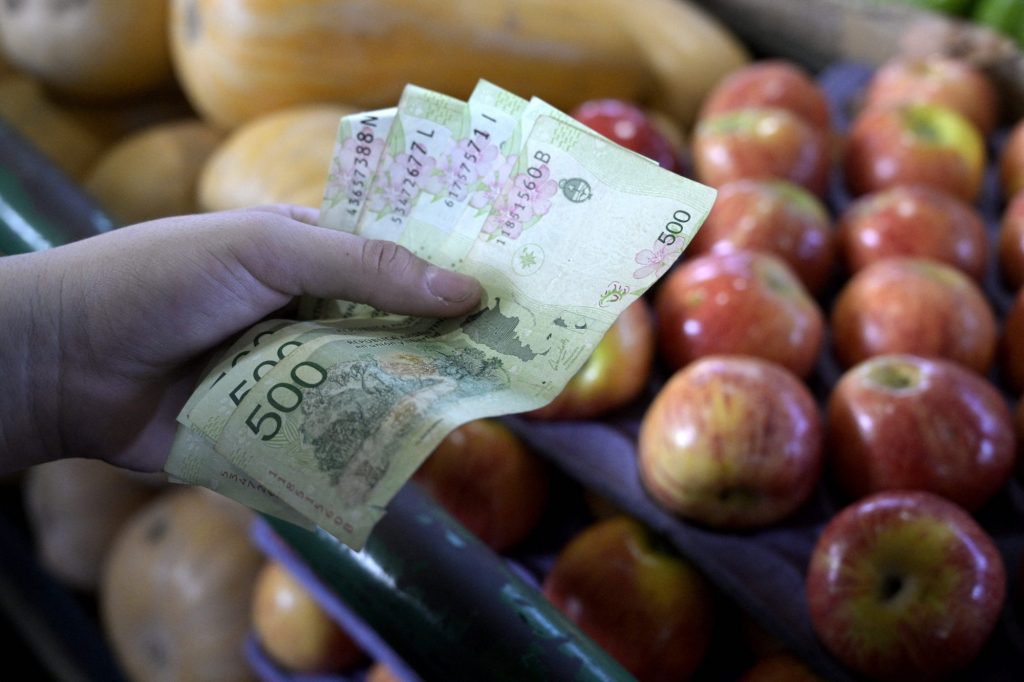The ‘pink tide’ that swept across much of Latin America in the past few months installing Leftist governments in Brazil, Chile and Colombia looks like receding in Argentina which will elect its President later this month. An anti-incumbent streak that lifted the Left could soon swing the election in this South American country the other way. The Left government is struggling hard to survive the onslaught launched by a Rightist politician, Javier Milei, economist and former TV pundit. The current Economy Minister Sergio Massa is trying to convince Argentineans to elect him President. But, Milei, a self-proclaimed “anarcho-capitalist” and Right-wing populist upset the calculations of all pollsters by receiving the most votes in last month’s national primaries. With nearly 35 per cent votes in his kitty in the primaries against Massa’s 25 per cent, he is now billed to win the presidential race.
The main issue that is swaying the minds of the voters is the high inflation that has soared to 124 per cent and the current dispensation is making all efforts to rein it in without much success. The popular sentiment is echoed by a young voter who said these days her family can afford beef only once a month and that too the family members take only bits of it. Everything is now very expensive. The high inflation rate is, in large part, a product of the government’s devaluation of the local currency, the peso, by nearly 20 per cent. Inflation in August was particularly high for food items, which increased 15.6 per cent from July with the price of some quality of beef soaring by as much as 40 per cent. The real increase that consumers saw in retail outlets was even higher.
In this backdrop, the youth and a large number of the male population are gravitating towards Milei who has said the answer to Argentina’s inflation woes is to adopt the US dollar as its official currency. Massa is opposed to it and is telling the people the dollar will turn out to be a mirage, while the remedy lies in proper adjustment of the Argentine currency – peso. However, an exultant Milei could gauge the popular mood well and in a symbolic gesture he signed his autograph on 500-peso bills, which are worth less than $1 in the black market. By this he sought to send the message across to the voters that the local currency has irrevocably depreciated over the past year.
Massa’s challenge is to find a balance between the response to the crisis he has been unable to provide as finance minister and promising that he could deliver as President. But, this is an uphill task as the people have, by and large, been disenchanted with the established parties of either the Left or the conservatives.
In many liberal democracies in Europe and Asia, the failure of established parties to deliver is turning the voters, especially the youth, towards Right-wing politics in the hope of getting a new solution without having any clear idea about the end result. The same seems to be influencing the electorate of Argentina. That the economic measures Massa is taking are not making much impact on the people is clear from his vote share in the primaries. His only silver lining is that the women voters are not happy with the Rightist rhetoric of Milei on the issue of abortion which the latter oppose tooth and nail. There are signs that the women are sinking their differences and trying to rally behind Massa.
Milei’s promise to shutter the central bank, slash the size of the government and dollarize the economy is getting traction among the electorate. It is likely that there would be a need for a run-off in November. A candidate needs 45 per cent of the vote, or at least 40 per cent with a 10-point lead to win outright in the first round. Whatever happens in the election on October 22, Milei is in an advantageous position.
